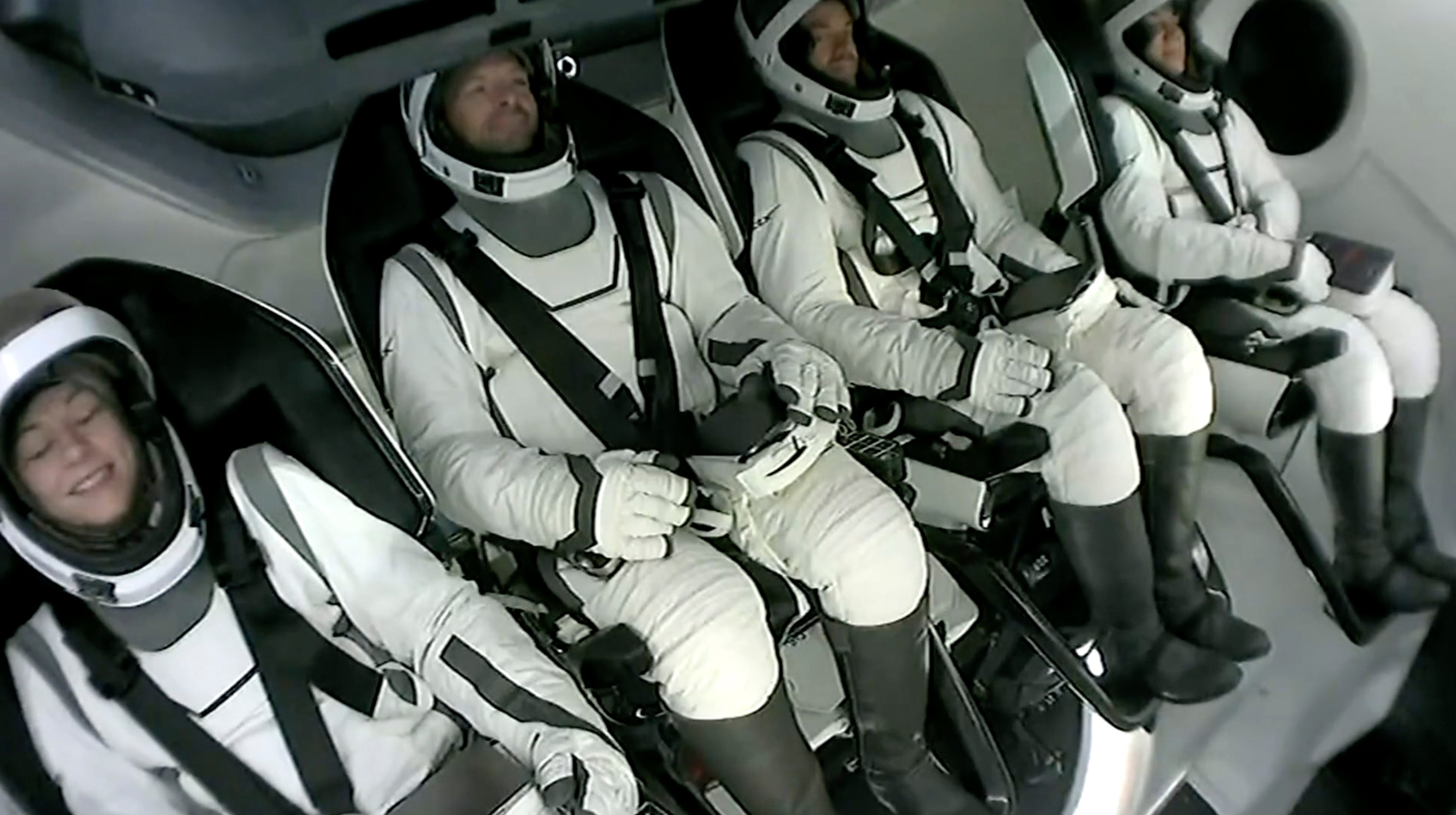Billonaire-funded Polaris Dawn crew share what it was like to go further in space than any human for 50 years
The historic mission paves the way for future trips to the Moon and Mars
The Polaris Dawn crew has revealed what it was like to go further in space than any human for 50 years during their historic spacewalk.
Billionaire Jared Isaacman, retired Air Force Lt. Col. Scott “Kidd” Poteet, and SpaceX engineers Sarah Gillis and Anna Menon, launched onboard a SpaceX Crew Dragon capsule into low-Earth orbit on September 10. Hundreds of miles above Earth, they conducted the first private spacewalk, taking the crew further than any human has traveled in more than 50 years.
They aimed to test the Elon Musk-owned agency’s new extra-vehicular activity astronaut suits, which have been designed to take astronauts to the Moon and Mars. The crew returned from the five-day mission this past weekend, splashing down off the Florida coast.
“It’s a heck of a ride downhill for sure,” Isaacman told NBC News on Tuesday, referring to the high gravitational forces they experienced upon re-entry.

“When you’re launching, that’s nothing but cheers, excitement, enthusiasm, because you have a lot of options available to get out of a bad situation, should it come to be,” he explained. “But on the way down, it’s all the heat shield ... There’s no plan B. You know that is going to be your higher blood pressure moment.”
While Isaacman and Gillis were the only two to exit the capsule - each spending about 10 minutes outside to conduct mobility tests - Poteet and Menon were also exposed to vacuum conditions because the Dragon does not have an airlock.
“The perfection of what you’re looking at is just awe-inspiring,” Poteet said, noting the sunrises and sunsets out the window of the spacecraft. “It’s so mesmerizing because it’s such a beautiful planet.”
But, despite the beauty, Isaacman also said he experienced a “sensory overload” during the spacewalk.

“It’s not just the visual stimulus of seeing Earth right in front of you,” he said. “There are pressure changes, there are big temperature transients. It gets gets colder. There’s the physical exertion of moving the hatch, so it was rather intense.”
Isaacman funded the mission for an undisclosed amount with SpaceX, but crew members also raised money for St. Jude Children’s Research Hospital. Now, the team is focused on two other missions although, there is currently no public timeline for those venture.
“We were taking all sorts of data to be able to learn more through science and research about the human response to that environment,” Menon said. “We will take all of this back, learn from it, and then be able to go further based on this.”
Join our commenting forum
Join thought-provoking conversations, follow other Independent readers and see their replies
Comments
Bookmark popover
Removed from bookmarks